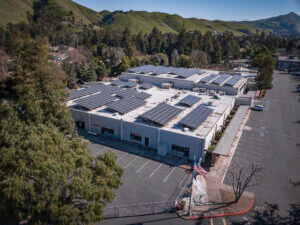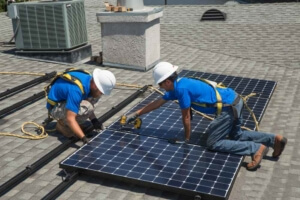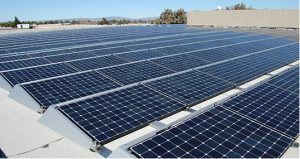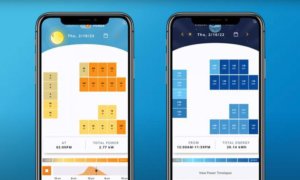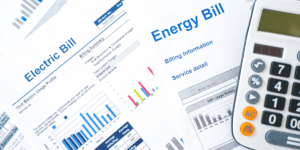Solar Industry News
How to Choose a Solar Panel Installer: Your Comprehensive Guide
Making the decision to install solar panels is an exciting step toward reducing energy costs and embracing renewable energy. However,…
Maximizing Savings: How Solar Panels Can Drastically Reduce Your Electric Bill
In an age where environmental sustainability and financial prudence intersect, solar energy emerges as a powerful solution. If you are…
The Advantages of California Home Solar Energy Systems in 2024: The Future is Radiant
Climate change remains a significant global concern that impacts us all. Many countries are actively working to reduce greenhouse gas…
Commercial Solar Panels: Costs & Benefits
Introduction As the world increasingly shifts its focus towards sustainable energy solutions, commercial solar panels are becoming a pivotal component…
Can I Install Solar Panels Myself?
More Bay Area homeowners are turning to solar to reduce their electricity bills and embrace clean energy. This has also…
Everything You Need to Know About Self-Consumption
Self-consumption is becoming increasingly important as more homeowners install solar panels and home batteries. It involves producing and using your…
How Does the California Solar Mandate Impact Homeowners and Businesses?
California is a leader in solar energy production in the United States. The state has taken big steps to use…
Self-Consumption Batteries vs. Backup Batteries
As solar power becomes a more popular choice for powering homes across the United States, maximizing your solar system’s potential…
Understanding Off-Peak Electricity Hours in California
As homeowners in Northern California are dealing with rising PG&E utility rates, understanding Time-of-Use (TOU) plans is more important than…
Does New Construction in California Require Solar?
California leads the nation in solar energy, consistently topping the Solar Energy Industries Association’s ranking of the best states to…
Learn More About
Solar + Battery Storage
Solar Industry News
Tesla Powerwall 2 Recall: Information and Support for Homeowners
At Solar Technologies, our service team is here to be a local resource for homeowners looking for clear, reliable information about current recalls and available support options. This article summarizes what’s known about the recent Tesla Powerwall 2 recall, what affected homeowners can expect, and how our team can help support the process if your…
What Is a Prepaid Solar PPA & Why Are More Homeowners Considering One 2026?
If you’re thinking about going solar in 2026, you’ve probably heard that the residential solar tax credit is ending. That change has left many homeowners wondering whether solar still makes sense. The answer is, yes! The only change is the way savings are captured. One option gaining momentum is the prepaid solar PPA. It’s a…
Secure Your 30% Solar Tax Credit: A Business Owner’s Guide to Safe Harbor Under IRS Notice 2018-59
As a business owner or commercial property investor, you know timing is everything — and that’s especially true when it comes to maximizing your federal solar tax incentives. With the future of the 30% Investment Tax Credit (ITC) uncertain, understanding Safe Harbor under IRS Notice 2018-59 could mean the difference between locking in thousands (or…
Action Required: Changes to SunStrong Solar Monitoring and Cellular Connectivity by July 8
If your home solar system is monitored through the SunStrong Connect app, previously mySunPower, you may have received a message recently about an upcoming service change. Here’s what you need to know — and what steps you should take — to avoid losing system monitoring and potentially damaging your equipment. Why Is This Happening? In…
Will the Federal Solar Tax Credit Survive 2025? Here’s What We Know
A Big Change Could Be Coming for Solar Incentives—Here’s What Bay Area Homeowners Need to Know If you’re thinking about going solar or adding battery storage, you’ve likely heard of the 30% Federal Solar Investment Tax Credit (ITC)—the incentive that’s helped millions of Americans lower the cost of their solar systems. But a proposed bill…
PG&E’s Net Billing Tariff Explained: How Solar + Battery Storage Maximizes Your Savings in 2025
PG&E’s Rules for Solar Changed—Here’s What You Need to Know – If you’re a Bay Area homeowner exploring solar in 2025, you’ve probably heard the term Net Billing Tariff, or NBT – sometimes referred to as NEM 3.0. This is PG&E’s new solar billing policy that replaced Net Metering (NEM) for residential customers. And while…
How Bay Area Homeowners Are Using Solar + Battery Storage to Beat PG&E Rate Hikes
Tired of PG&E Rate Hikes and Rising Bills? There’s a Better Way PG&E rates have soared over 40% in the past few years—and they’re not slowing down. For Bay Area homeowners, that means higher monthly bills with little warning and fewer options. But thousands have already found a solution: solar + battery storage. With solar…
Why 2025 May Be The Best Year To Go Solar In California
If You’ve Been Thinking About Solar, Don’t Wait Until The Tax Credit is Gone For years, the 30% Federal Solar Tax Credit (ITC) has made going solar one of the smartest financial moves a California homeowner can make. But if Congress passes the proposed legislation now in play, 2025 could be the last year to…
Solar Panels in California: What to Know Before You Buy in 2025
Thinking About Going Solar? Make Sure You Start With the Right Solar Panels – If you’re a Bay Area homeowner considering solar in 2025, you’re not alone. With utility rates rising and tax incentives likely ending this year, more people than ever are looking to take control of their energy bills. But not all solar…
How To Connect Your SunPower Monitoring Device to Wi-Fi
Connect your monitoring device to wi-fi The PVS (Photovoltaic Supervisor) is a compact device typically installed in your garage or mounted on an exterior wall. It functions as the central hub of your solar system, collecting performance data and communicating with other tools, including the Sunstrong Monitoring platform. What was previously known as the mySunPower®…




